
September 1
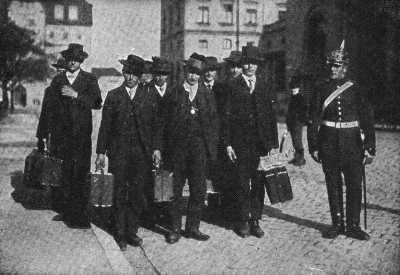
1914 World War I: List Regiment: Hitler's regiment begins a short but intensive basic training program, which is held in the premises of a large public school on the Elizabeth Platz in Munich. Hitler receives the first uniform of his life; basic greenish-grey with an "RIR 16" sown in red unto the epaulettes and a red stripe down the side of the trousers. The trousers are tucked into new leather boots, topped by a thick leather belt around the waist of the uniform jacket.
A fellow recruit, Hans Mend, will later recall that he first notices Hitler during this time. Mend takes Hitler to be "an academic, of whom there were many in the List Regiment. "I saw him for the second time on another day, as he pottered about with his rifle. He regarded it with the delight of a woman with her jewelry, while I secretly laughed to myself." [For further details, Click here.]
1915 World War I: Various: List Regiment: 
War at Sea: Germany announces cessation of unlimited submarine warfare. The Germans, fearing US involvement in the war on the side of the Allies, agrees to pay indemnities and guarantees that submarines will not sink passenger liners without warning.
1916 World War I: List Regiment:
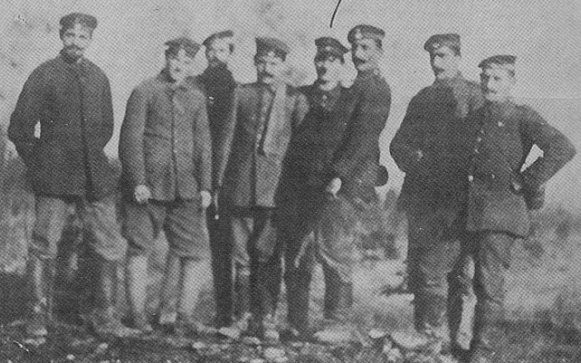
Hitler and his fellow dispatch runners
Gefreiter Adolf Hitler endures trench warfare in Flanders (Artois) with 3 Company, 16 Reserve Infantry Regiment [List Regiment]. [For further details, Click here.]
1917 World War I: Various: List Regiment (July 22-September 8):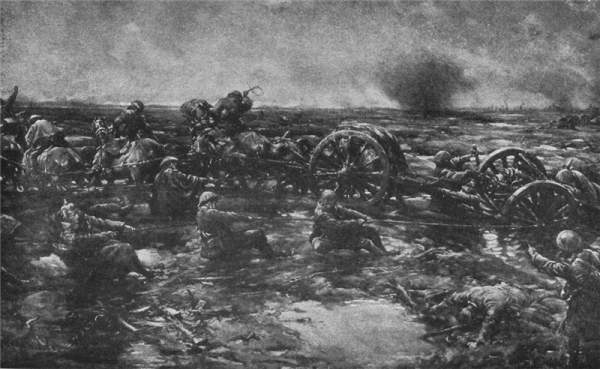
Russian Front: General Oscar von Hutier's Eighth Army attacks Riga, northern anchor of the Russian front. As a holding attack on the west bank of the Dvina River threatens the city, three divisions cross the river to the north on pontoon bridges, encircling the fortress, while exploiting elements pouring eastward. The Russian Twelfth Army flees, and a small German amphibious force occupies Osel and Dago islands in the Gulf of Riga. The German victory at Riga leaves Petrograd unprotected.
Soldier recounts brush with poison gas:
On this day in 1917, American soldier Stull Holt writes a letter home recounting some of his battlefield experiences on the Western Front at Verdun, France.
Born in New York City in 1896, Holt served during World War I as a driver with the American Ambulance Field Service. He later joined the American Air Service, receiving his pilot commission as a first lieutenant.
"Dear Lois," Holt began his letter, written while he was in Paris on leave, "enjoying the luxuries of life including ice cream, sheets, cafes and things." The bulk of Holt's letter discussed his experiences at the fortress city of Verdun, where French and German troops had battled for an excruciating 10 months in 1916 and where fighting continued throughout the following year. "The French have a saying to the effect that no one comes out of Verdun the same. As the fighting is stiff there always the statement is probably true for all times, it certainly is true of Verdun during an attack. It would take a book to tell about all that happened there and when I try to write, little incidents entirely unconnected come to my mind so I don't know where or how to begin."
Holt described the ruined countryside and villages around Verdun, as well as the sights—and stench—of constant battle. "Besides the desolation visible to the eye there was the desolation visible to the nose. You could often see old bones, boots, clothing and things besides lots of recent ones." The letter's most vivid passage, however, recounted his own experiences under fire, including an incident in which he was struck by a shell containing poisonous gas.
"Something hit me on the head, making a big dent in my helmet and raising a bump on my head. If it hadn't been for my helmet my head would have been cracked. As it was I was dazed, knocked down and my gas mask knocked off. I got several breathes [sic] of the strong solution right from the shell before it got diluted with much air. If it hadn't been for the fellow with me I probably wouldn't be writing this letter because I couldn't see, my eyes were running water and burning, so was my nose and I could hardly breathe. I gasped, choked and felt the extreme terror of the man who goes under in the water and will clutch at a straw. The fellow with me grabbed me and led me the hundred yards or so to the post where the doctor gave me a little stuff and where I became alright again in a few hours except that I was a little intoxicated from the gas for a while. I had other close calls but that was the closest and shook me up most. I think the hardest thing I did was to go back again alone the next night. I had to call myself names before I got up nerve enough."
Holt's letters were later published in The Great War at Home and Abroad: The World War I Diaries and Letters of W. Stull Holt (1999). (History.com)
1918 Various: Volkishness:
World War I: List Regiment (August 21-September 27):
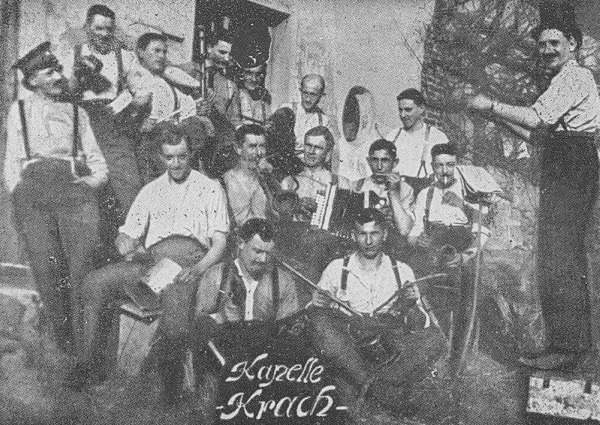
Gefreiter Adolf Hitler attends a signals training course in Nuremberg. [For further details, Click here.]
1919 Official Report of US AEF Commander-in-Chief General John Pershing:
Following the rather earnest appeals of the Allies for American troops, it was decided to send to France, at once, one complete division and nine newly organized regiments of Engineers. The division was formed of regular regiments, necessary transfers of officers and men were made, and recruits were assigned to increase these units to the required strength. The offer by the Navy Department of one regiment of Marines to be reorganized as Infantry was accepted by the Secretary of War, and it became temporarily a part of the First Division. Prior to our entrance into the war, the regiments of our small army were very much scattered, and we had no organized units, even approximating a division, that could be sent overseas prepared to take the field.
1923 Weimar (Sept 1-2): Ludendorff announces his support of Adolf Hitler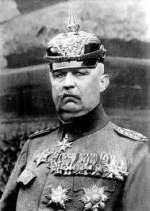
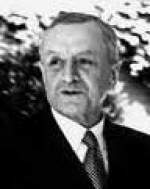
I went to see Ludendorff chiefly to pay him a call of courtesy, but also in order to discuss with him the great national questions which then preoccupied his mind as much as mine. I deplored the fact that there were not at that time men in Germany whom an energetic national spirit would inspire to improve the situation. "There is but one hope," Ludendorff said to me, "and this hope is embodied in the national groups which desire our recovery." He recommended to me in particular the Overland League and, above all, the National Socialist party of Adolf Hitler. Ludendorff greatly admired Hitler. "He is the only man," he said, "who has any political sense. Go and listen to him one day." I followed his advice. I attended several public meetings organized by Hitler. It was then that I realized his oratorical gifts and his ability to lead the masses. What impressed me most, however, was the order that reigned in his meetings, the almost military discipline of his followers.
1932 Weimar: From an article by Goebbels in Der Angriff:
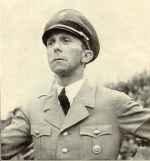
A dictatorship requires three things: a man, an idea, and a following ready to live for the man and the idea, and if necessary to die for them. If the man is lacking it is hopeless; if the idea is lacking, it is impossible; if the following is missing, the dictatorship is only a bad joke.
1935 Zionism: Chaim Weizmann becomes president of the World Zionist Organization at the Nineteenth World Zionist Congress in Lucerne.
1938 Various:
Sudetenland:
Holocaust: Italy: The government orders all Jewish residents who settled in the country after 1919 to leave the country within six months, or be deported.
1939 World War II: Germany invades Poland:
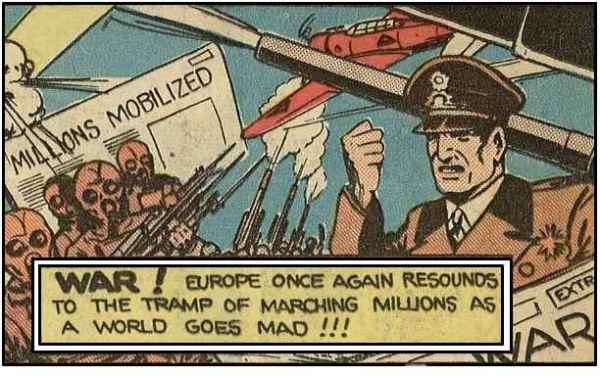
German forces bombard Poland on land and from the air, as Adolf Hitler seeks to regain lost territory and ultimately rule Poland. World War II had begun.
The German invasion of Poland was a primer on how Hitler intended to wage war—what would become the "blitzkrieg" strategy. This was characterized by extensive bombing early on to destroy the enemy's air capacity, railroads, communication lines, and munitions dumps, followed by a massive land invasion with overwhelming numbers of troops, tanks, and artillery. Once the German forces had plowed their way through, devastating a swath of territory, infantry moved in, picking off any remaining resistance.
Once Hitler had a base of operations within the target country, he immediately began setting up "security" forces to annihilate all enemies of his Nazi ideology, whether racial, religious, or political. Concentration camps for slave laborers and the extermination of civilians went hand in hand with German rule of a conquered nation. For example, within one day of the German invasion of Poland, Hitler was already setting up SS "Death's Head" regiments to terrorize the populace.
The Polish army made several severe strategic miscalculations early on. Although 1 million strong, the Polish forces were severely under-equipped and attempted to take the Germans head-on with horsed cavaliers in a forward concentration, rather than falling back to more natural defensive positions. The outmoded thinking of the Polish commanders coupled with the antiquated state of its military was simply no match for the overwhelming and modern mechanized German forces. And, of course, any hope the Poles might have had of a Soviet counter-response was dashed with the signing of the Ribbentrop-Molotov Nonaggression Pact.
Great Britain would respond with bombing raids over Germany three days later. (History.com)
Hitler's Proclamation to the German Army:
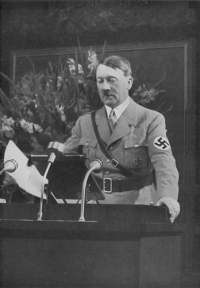
The Polish State has refused the peaceful settlement of relations which I desired, and has appealed to arms. Germans in Poland are persecuted with bloody terror and driven from their houses. A series of violations of the frontier, intolerable to a great Power, prove that Poland is no longer willing to respect the frontier of the Reich. In order to put an end to this lunacy, I have no other choice than to meet force with force from now on. The German Army will fight the battle for the honor and the vital rights of reborn Germany with hard determination. I expect that every soldier, mindful of the great traditions of eternal German soldiery, will ever remain conscious that he is a representative of the National-Socialist Greater Germany. Long live our people and our Reich!
Outbreak of War:
The German Air Force commenced hostilities at 0440 by bombing Polish air bases at widely separated points throughout the country. A few minutes later the Schleswig-Holstein commenced shelling the Polish fortress of Westerplatte, in Danzig Harbor, at a range of only several hundred yards. The brief but heavy bombardment was followed by the landing of a small German force, which was immediately driven off by the Poles. The Polish destroyer Wicker was sunk, defending the port of Gdynia against air attack and bombardment by light German naval units. All five Polish submarines were at sea; three escaped to internment in Sweden, while the Orzel andWilk managed to reach safety in Britain. In the waters offshore, German surface, submarine, and air forces quickly established a tight blockade of the Polish port areas.
Air attack:
The German air attack hit so quickly that most of Poland's air force was destroyed while still on the ground. To hinder Polish mobilization, the Germans bombed bridges and roads. Groups of marching soldiers were machine-gunned from the air. But the Germans did not just aim for soldiers, they also shot at civilians. Groups of fleeing civilians often found themselves under attack. The more confusion and chaos the Germans could create, the slower Poland could mobilize its forces.
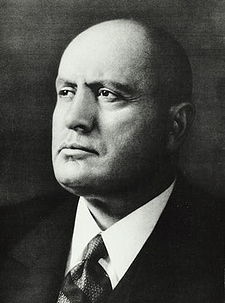
Mussolini proposes a suspension of hostilities and the immediate convening of a Conference of the Big Powers, Poland included, to discuss terms for a peaceful settlement. Germany, France, and Poland immediately accept Mussolini's proposals. Britain categorically rejects any negotiations and demands withdrawal of German troops from all occupied Polish territory (30 kilometers deep). Note: Britain does not consult with Warsaw before making its decision.
Hitler speaks before the Reichstag:
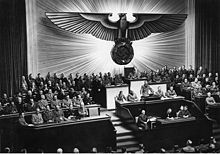
This night for the first time Polish regular soldiers fired on our own territory. Since 5:45 AM we have been returning the fire, and from now on bombs will be met with bombs. Whoever fights with poison gas will be fought with poison gas. Whoever departs from the rules of humane warfare can only expect that we shall do the same. I will continue this struggle, no matter against whom, until the safety of the Reich and its rights are secured.
Chamberlain speaks before the House of Commons:

It now only remains for us to set our teeth and to enter upon this struggle, which we ourselves earnestly endeavoured to avoid, with determination to see it through to the end. We shall enter it with a clear conscience, with the support of the Dominions and the British Empire, and the moral approval of the greater part of the world. We have no quarrel with the German people, except that they allow themselves to be governed by a Nazi Government. As long as that Government exists and pursues the methods it has so persistently followed during the last two years, there will be no peace in Europe. We shall merely pass from one crisis to another, and see one country after another attacked by methods which have now become familiar to us in their sickening technique. We are resolved that these methods must come to an end. If out of the struggle we again re-establish in the world the rules of good faith and the renunciation of force, why, then even the sacrifices that will be entailed upon us will find their fullest justification.
Danzig: Gauleiter Albrecht Foerster proclaims an Anschluss (union) of Danzig with Greater Germany:
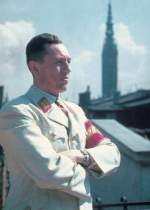
The hour for which you have been longing for twenty years has come. This day Danzig has returned to the great German Reich. Our Fuehrer, Adolf Hitler, has freed us.The Swastika flag, the flag of the German Reich, is flying to-day for the first time from the public buildings of Danzig. It also flies from the former Polish buildings, and everywhere in the harbor, the towers of the ancient town hall and St. Mary's Church. The bells ring in Danzig's hour of liberation. We thank our God that He gave the Fuehrer the power and the opportunity of freeing us from the evil of the Versailles Diktat. We Danzigers are happy to be able to become now citizens of the Reich.
The Wound Badge for Wehrmacht, SS, Kriegsmarine, and Luftwaffe soldiers is instituted. The final version of the Iron Cross is also instituted on this date.
Holocaust: An 8 PM curfew is established for all German Jews.
Britain bans television for the duration of the coming conflict. The ban will not be lifted until 7 years have passed. Note: At this time there are only a mere 2,000 TV sets in GB.
Church and Reich: Osborne, British Ambassador at the Vatican, reports to Lord Halifax that he had suggested to Papal Secretary of State Luigi Maglione that publication of the last-minute unsuccessful peace appeal of Pope Pius XII be accompanied by an expression of regret that the German government, despite the Papal appeal, has plunged the world into war. Maglione, he says, has turned down this request as too specific an intervention into international politics. (THP)
The Euthanasia Decree, which will not actually be written until October, is predated to go into effect on this date in Greater Germany. This decree orders that all Germans with incurable diseases are to be killed in order to free up needed hospital space and eliminate "useless eaters."
Patients had to be reported if they suffered from schizophrenia, epilepsy, senile disorders, therapy resistant paralysis and syphilitic diseases, retardation, encephalitis, Huntington's chorea and other neurological conditions, also those who had been continuously in institutions for at least 5 years, or were criminally insane, or did not posses German citizenship or were not of German or related blood, including Jews, Negroes, and Gypsies.
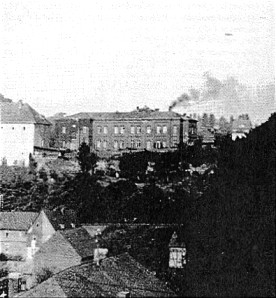
A total of six killing centers were established including the well known psychiatric clinic at Hadamar. The euthanasia program was eventually headed by an SS man named Christian Wirth, a notorious brute with the nickname 'the savage Christian.'
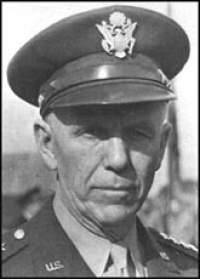
George C. Marshall becomes Chief of Staff of the United States Army.

1940 World War II: Romania: Horia Sima broadcasts a demand for the abdication of King Carol.
1941 Various:
Holocaust:
World War II: Rudolf Hess:
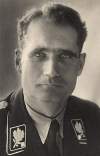
Lord Beaverbrook, a leading Conservative member of Churchill's government, writes to Hess, requesting a meeting. On this same day, Beaverbrook is appointed to head a Cabinet mission to Moscow to discuss aid for the Soviets. (THP)
There is circumstantial evidence which suggests that Hess was lured to Scotland by the British secret service. Violet Roberts, whose nephew, Walter Roberts was a close relative of the Duke of Hamilton and was working in the political intelligence and propaganda branch of the Secret Intelligence Service (SO1/PWE), was friends with Hess's mentor Karl Haushofer and wrote a letter to Haushofer, which Hess took great interest in prior to his flight. Haushofer replied to Violet Roberts, suggesting a post office box in Portugal for further correspondence. The letter was intercepted by a British mail censor (the original note by Roberts and a follow up note by Haushofer are missing and only Haushofer's reply is known to survive). Certain documents Hess brought with him to Britain were to be sealed until 2017 but when the seal was broken in 1991-92 they were missing.
1942 Various:
World War II: German troops reach the outskirts of Stalingrad.
The situation at the Stalingrad front was critical for soviets during the entire September. In the beginning of September, 62nd Army was forced back to the western and northern outskirts of the city, 64th moved to the south. Both these armies suffered great losses during battles on approach to the city, but there was nobody else to defend Stalingrad, and HQ ordered them to take first strike of Wehrmacht. When 6th field Army and 4th Tank Army came within the reach of Stalingrad outskirts, Germans decided to begin a new assault.
SS Dr. Johann Paul Kremer's Auschwitz Diary: "Wrote off to Berlin for officers' cap, belt, suspenders. In afternoon attended block gassing with Zyklon B against lice."
USA: A federal judge in Sacramento, Calif., upholds the wartime detention of Japanese-Americans as well as Japanese nationals. (AP)
1944 World War II: Various:
France:
The Warsaw Uprising: The AK (Polish Home Army) evacuates Warsaw's Old Town. Some 4,000 men escape into sewers down which the Germans, who have been killing as many Poles and Jews as possible for exactly 5 years, pour poison gas.
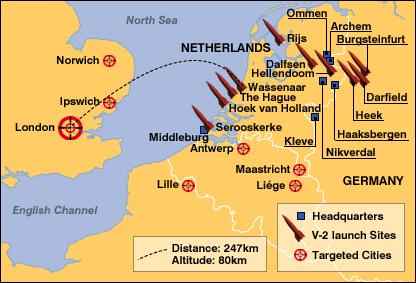
Fatalities from all V-1 attacks total only 190 for the entire month August. On this day, the very last V-1 attack to be launched from France occurs. (Gruen)
From Triumph and Tragedy by Winston Churchill:Our Intelligence had played a vital part (in defeating the Flying Bombs). The size and performance of the weapon, and the intended scale of attack, were known to us in excellent time. This enabled our fighters to be made ready. The launching sites and the storage caverns were found, enabling our bombers to delay the attack and mitigate its violence. Every known means of getting information was employed, and it was pieced together with great skill. To all our sources, many of whom worked amid deadly danger, and some of whom will be forever unknown to us, I pay my tribute. But good Intelligence alone would have been useless. Fighters, bombers, guns, balloons, scientists, Civil Defense, and all organizations that lay behind them, had each played their parts to the full. It was a great and concerted defense, made absolute by the victory of our armies in France.
[See: Wunderwaffen: Hitler's Deception and the History of Rocketry.]1945 The US receives official word of Japan's formal surrender. Note: In Japan, it is actually September 2nd.

1981 Death: Albert Speer: Nazi official: He is sometimes called 'the first architect of the Third Reich.' He was Hitler's chief architect in Nazi Germany and in 1942 became Hitler's minister for armaments and had considerable success reforming and streamlining Germany's war production. After the war, Albert Speer was tried at Nuremberg and was sentenced to 20 years in Spandau prison, earning the distinction of being the only Nazi leader to publicly repent for his crimes. After his release, he became a successful author, writing a number of semi-autobiographical works until his death in London in 1981 from natural causes.
1983 Korean Airlines flight shot down by Soviet Union:
Soviet jet fighters intercept a Korean Airlines passenger flight in Russian airspace and shoot the plane down, killing 269 passengers and crewmembers. The incident dramatically increased tensions between the Soviet Union and the United States.
On September 1, 1983, Korean Airlines (KAL) flight 007 was on the last leg of a flight from New York City to Seoul, with a stopover in Anchorage, Alaska. As it approached its final destination, the plane began to veer far off its normal course. In just a short time, the plane flew into Russian airspace and crossed over the Kamchatka Peninsula, where some top-secret Soviet military installations were known to be located. The Soviets sent two fighters to intercept the plane. According to tapes of the conversations between the fighter pilots and Soviet ground control, the fighters quickly located the KAL flight and tried to make contact with the passenger jet. Failing to receive a response, one of the fighters fired a heat-seeking missile. KAL 007 was hit and plummeted into the Sea of Japan. All 269 people on board were killed. [For further information, click here]
Edited by Levi Bookin (Copy editor) Click to join 3rdReichStudies Disclaimer: This site includes diverse and controversial materials—such as excerpts from the writings of racists and anti-Semites—so that its readers can learn the nature and extent of hate and anti-Semitic discourse. It is our sincere belief that only the informed citizen can prevail over the ignorance of Racialist "thought." Far from approving these writings, this site condemns racism in all of its forms and manifestations.
levi.bookin@gmail.com










Fair Use Notice: This site may contain copyrighted material the use of which has not always been specifically authorized by the copyright owner. We are making such material available in our efforts to advance understanding of historical, political, human rights, economic, democracy, scientific, environmental, and social justice issues, etc. We believe this constitutes a "fair use" of any such copyrighted material as provided for in section 107 of the US Copyright Law. In accordance with Title 17 U.S.C. Section 107, the material on this site is distributed without profit to those who have expressed a prior interest in receiving the included information for research and educational purposes. If you wish to use copyrighted material from this site for purposes of your own that go beyond 'fair use', you must obtain permission from the copyright owner.
Please Note: The list-owner and moderators of 3rdReichStudies are not responsible for, and do not necessarily approve of, the random ads placed on our pages by our web server. They are, unfortunately, the price one pays for a 'free' website.



